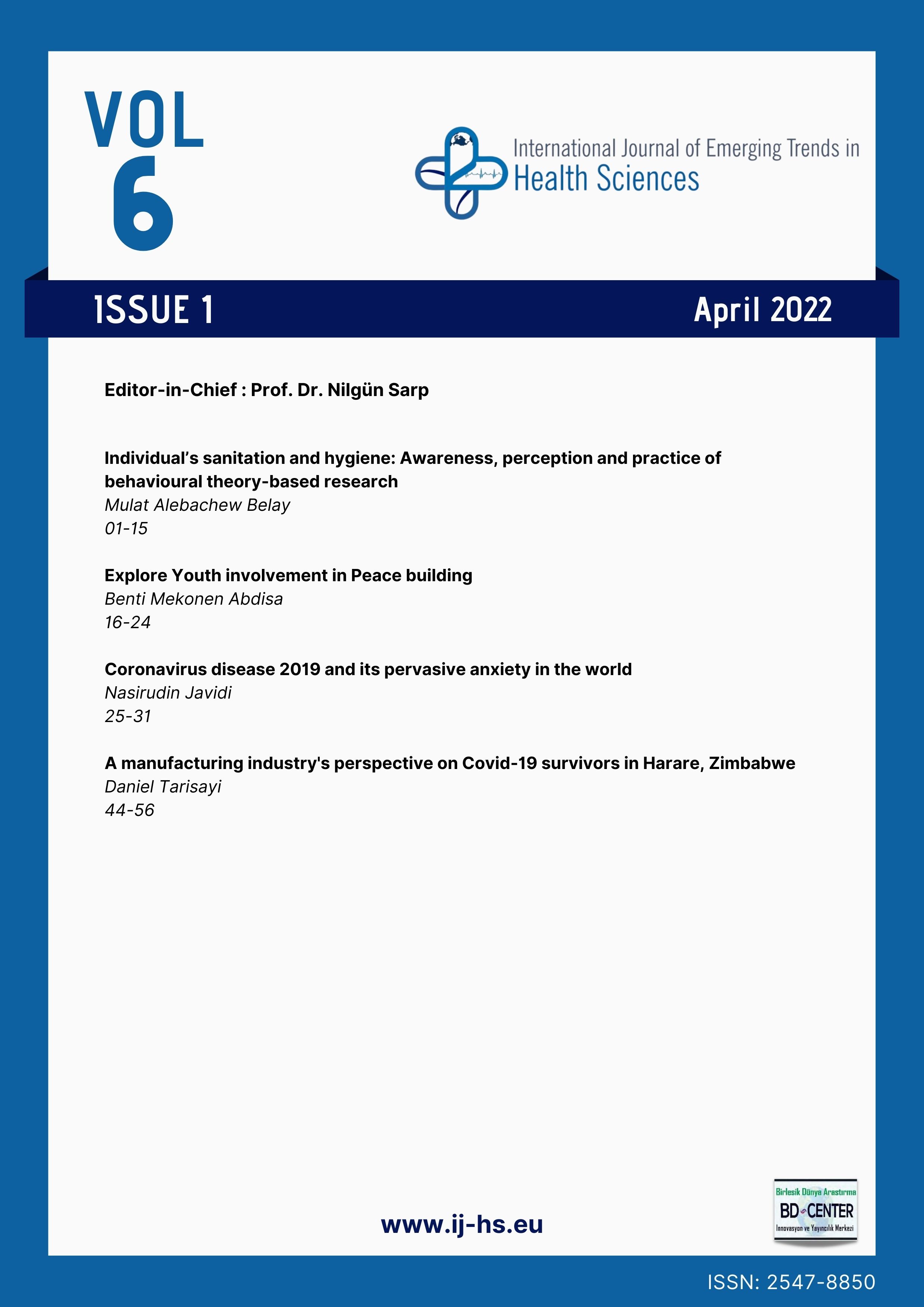A manufacturing industry's perspective on Covid-19 survivors in Harare, Zimbabwe
Main Article Content
Abstract
The Covid-19 pandemic has had devastating mental health effects on most people mainly as a result of measures being used to contain it like self-quarantine, self-isolation, and social distancing. This study seeks to explore the lived experiences of Covid-19 survivors at a manufacturing company in Harare, Zimbabwe. The objectives of the study were to describe the psychosocial experiences of Covid-19 survivors, explore the coping mechanisms employed by the Survivors, and come up with a psychosocial support model for Covid-19 management. A qualitative research approach was used. A total of 8 participants took part in the study. The researcher utilized purposive sampling to select study participants. Data was collected using a semi-structured interview guide. Data were analyzed using thematic analysis. Major findings of the study were that participants had near-death experiences accompanied by grief experiences shock and panic in the first three days post-diagnosis with Covid-19 which altered the mental state of individuals.
Keywords: Covid-19; Manufacturing Industry; Psychosocial; Survivors.
Downloads
Article Details

This work is licensed under a Creative Commons Attribution 4.0 International License.
Authors who publish with this journal agree to the following terms:
- Authors retain copyright and grant the journal right of first publication with the work simultaneously licensed under a Creative Commons Attribution License that allows others to share the work with an acknowledgement of the work's authorship and initial publication in this journal.
- Authors are able to enter into separate, additional contractual arrangements for the non-exclusive distribution of the journal's published version of the work (e.g., post it to an institutional repository or publish it in a book), with an acknowledgement of its initial publication in this journal.
- Authors are permitted and encouraged to post their work online (e.g., in institutional repositories or on their website) prior to and during the submission process, as it can lead to productive exchanges, as well as earlier and greater citation of published work (See The Effect of Open Access).
